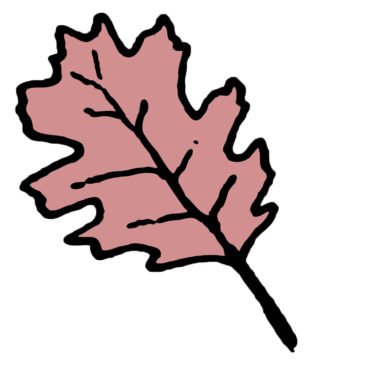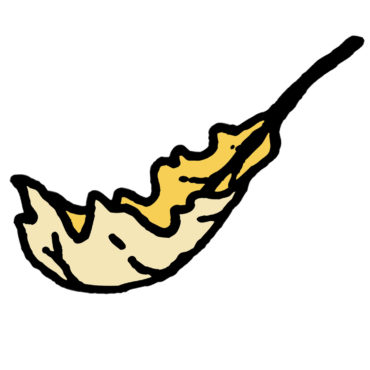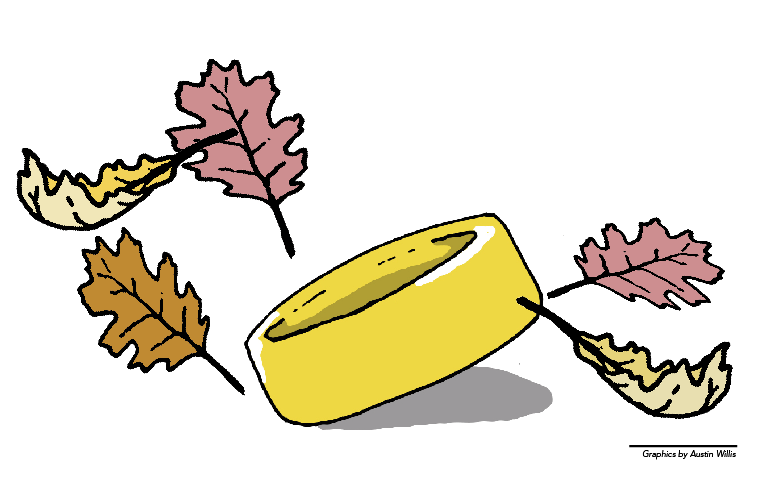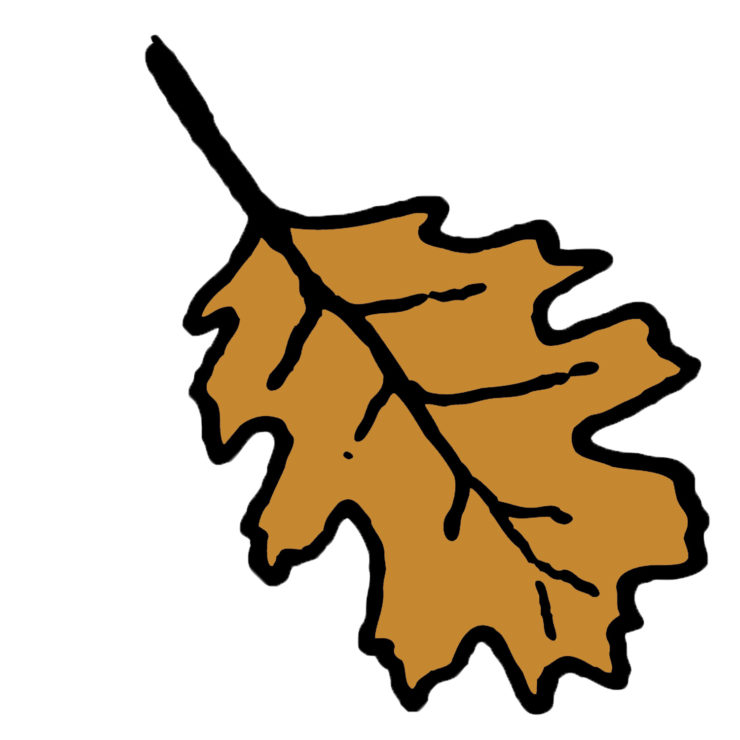Ring, by Marley Sterner: Fiction Winner of the Martlet’s Summer Writing Contest
Whenever my father wiped the kitchen counter, his wedding band scratched against the granite. I’d watched him clean in the mornings for so many years that even from my bed I could visualize the scene through sound alone. Sinatra seduced the bleached air, and my father whistled along to “Autumn Leaves” in cringed harmony. He’d swivel his hips with the saxophone and unclog sludge from the garburator. Dip the mop, fifties-style, and give it a kiss, but that might’ve just been to make me laugh as a little kid. With a wet cloth he’d scrub every visible surface, so when my mother returned from the hospital night shift she could unwind in a clean kitchen.
My mother no longer returns to us. She returns to Larry. I don’t know if that’s his name, but “Larry” rolls off the tongue with the right amount of slime. She served the divorce papers, as though she was the victim. My father begged her to reconsider, to think of their twenty years, to think of me. I didn’t want her to think of me. Not when she had paused halfway out the door with her ringless fingers hooked around the handle of her last wheeled suitcase and stared at the pink Converse I wore, my last feminine article. Said she’d miss her little girl. Left without using my boy’s name.
Even with her gone, every morning the sound of my father in the kitchen still seeped into my room. Sinatra’s “As Time Goes By,” accompanied by the whistle. The tap and scrape of the ring. It started as a haunt of the past, of family movie nights and Casablanca reflected in the surface of gold rings on twined fingers. He cleaned the kitchen in the morning, cleaned the ring in the afternoon, set it under her pillow at night. Until one evening my father broke the ritualistic loop and left the ring on his bathroom counter.
I found it after a shower, and first thought to plunk it down the sink and let it drift through toenail-infested wastewater forever. But then I remembered the roof, and my parents’ polarized faces when I had asked them from up on the leaf-stickered tiles to call me by a boy’s name from then on.
So instead I crept into the backyard at twilight, with just enough light to see each rounded leaf of the fat oak tree. A thick rope, saturated with dirt after years without use, still dangled from the tree’s lowest branch. I sucked the ring into my cheek, rolled it in saliva, and contorted my body around the rope. Shimmied up, knot by knot, like my mother taught me. My hands and feet looped around the gnarled bark at the top, and I lounged from the branch like a sloth. The ring threatened to slip down my throat. Once straightened, I laddered up the branches and made for the roof. A thinner branch sloped and groaned, not used to my teenage frame. I thought it might snap off, and then we’d both fall to the grass, and my body would snap too. They wouldn’t find the ring until the autopsy, tucked under my tongue or otherwise lodged in my neck, sticky with half-dried fluid.
But I reached the jigsawed roof tiles without so much as a crackle. The oak tree’s branches umbrella-d the house in summer and showered pumpkin-orange leaves in the fall. The leaves sponged up rainwater and then baked in the sun until they smelled like rancid milk and old soil. Every year before winter my mother would climb up and thwack them from the roof with her broom. I’d comb the leaves into piles on the lawn and swallow them up in garbage bags. For the occasion she’d abandon her skirt and we’d dress in sweats and baggy shirts, hair tucked in a cap. Like skater boys, my mother joked. Or twins. The leaves’ smell nauseated my father, so he’d sit inside and watch us work with his cheek smudged against the window. He tried once to go up himself, but froze on the third rung of the ladder and looked up at the dead leaves. He made this expression I’d never seen before. His face tied up in an ugly knot, mouth so tight his lips disappeared. But then he climbed down, and his tongue wagged toward his chin like at any moment he might hurl.
A week before she disappeared with Larry, my mother had promised to get rid of the leaves with me again. Now four months had passed. They wadded up the eaves trough in foot-high mounds from the winter rain. That familiar, sour-milk stench embraced the air. As I scuffed forward on hands and knees, the leaves leaked juice that soaked through my sweats. I squatted in front of the biggest pile in the eaves trough and bathed my hands in the leafy sludge. A grainy, cool liquid coated my fingers, like sand underwater. I kneaded my thumb into the peak of the leaf pile and sculpted it into a walnut-sized bowl. Spat the wet ring into my palm and nested it inside. My hands pulled free without the ring, sticky and stained brown. Barely visible in the hole I’d made, the metal painted my reflection gold.
In the morning I woke to a bang. No Sinatra, no whistle. I tugged on my Canucks jersey, slipped an unneeded hair elastic around my wrist, and as I left the room dragged fingers over each of the facedown picture frames on my desk.
Sheets piled outside my parents’ bedroom. Inside, a minefield of polo sweaters and Trojans. The chest of drawers teetered off-balance, thrown open and empty. A broom with curls of dust protruded out from under the bed. The bedposts shifted on a diagonal, and exposed sunken indents in the carpet.
The master bathroom. Cabinets cleared out, medicine littered the cream tiles. Fallen bottles splattered conditioner on the glass shower door. A bottle of Advil had cracked open and spilled seaweed-coloured pills into the sink. Multivitamins. Pepto-Bismol. Viagra.
 Hallway. I navigated around the pillow cases and coiled bedsheets. Towel closet ravaged. Linen closet destroyed. But my bathroom: untouched.
Hallway. I navigated around the pillow cases and coiled bedsheets. Towel closet ravaged. Linen closet destroyed. But my bathroom: untouched.
Downstairs, the living room. Leather couch cushions overturned, blankets tossed away, every cupboard drawer yanked out. The table with the family pictures stood intact and freshly dusted. I found him on his stomach with half his body shoved under the couch, and out from the lumberjack pyjama-bottoms peeked the crack of his ass. My mother and I used to call him Mr. Skellington. He jacked the couch up on his bare shoulders, swiped the mop handle beneath. A muffled moan echoed — something like a pregnant cow.
“It’s gone,” he said.
“Get out of the couch, Dad.” Reaching toward my ear, I tugged for a tendril of hair but groped air instead. Over a year since I chopped it off and the habit still surfaced.
He scuttled out, and knocked the coffee table with his foot. Cold tea splattered on the hardwood. He sat shirtless like a kindergartner and wouldn’t look at me, eyes pinked by months-old tears. The couch had bruised each ridge of his knobby spine, and dented his shoulder blades. Hardwood frizzed his wisp of chest hair, left red imprints on his ribs and chin. He scratched the scruff of mulch hair by the nape of his neck, coated with dust from the couch’s underbelly. With his pinky he fingered the hole in the heel of his sock. This man, my father.
“I can’t find it, not anywhere.” He pried loose a sock thread.
Four months since she left.
“It’s all my fault.”
Four months.
“Should have just taken it to bed again — ”
“You left it behind on purpose?” I said.
My father looked at the mirror leaned against the wall, at the child high above him. Called me by the boy’s name, said it with tenderness. Then he stared at the broken man on the floor, lips twisted into something foul. Shame, maybe. I recognized the expression, familiar as my own face. His features and her beauty, my mother always said. He too hated what he saw, what he couldn’t change about himself.
At least, not yet.
“I’ll check upstairs again.” And I left, but didn’t take the stairs.
My hands reeked of lavender soap when I returned to the living room. My father had straightened the couch, repositioned the cushions and blankets. I held out the ring in my palm, and clenched the other hand by my side. “Found it behind your toilet. Gave it a rinse, too.”
He didn’t smile, or sigh with relief, when it settled back on his finger. Instead, he looked at the wedding band like he had the autumn leaves once. As he walked into the kitchen, I glimpsed a morning where I’d lie in bed and hear his whistle, the patter of a wrung cloth, and nothing more.









